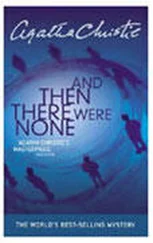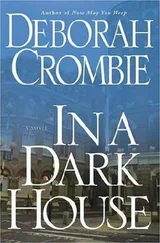"A burial, then, but no marker?" Angel said to Mrs. Thomas as they walked back to Westbourne Park.
"No. They're quite expensive, even the plain ones," Mrs. Thomas agreed. "But you can always add something later." Her dark eyes shone with concern. "Angel, I want you to know you're welcome to stay with us as long as you need. I'm sure your father never meant to leave you like this."
"I'll be all right, thanks. I'll find somewhere close by." It was not only that she still felt the hurt from last winter's rejection, but that things had changed and she no longer felt so at home at the Thomases'. Betty, having inherited her mother's skill with a needle, had left school to take a job with a milliner in Kensington Church Street. With the job had come new friends, a new life that did not include Angel. And Ronnie had little time for either of them. When he wasn't working at his job as a photographer's assistant, shooting weddings and family portraits, he roamed the streets with his camera, developing the black-and-white prints in the flat's bathroom and ignoring his family's complaints about the chemical odors. Angel found the Notting Hill street scenes and portraits fascinating, but felt the distance he had put between them too keenly to tell him so.
The day of her father's funeral, unlike that of her mother's, dawned clear and unseasonably mild. There was a hint of softness in the air, as if spring might be hiding round the corner, but Angel knew it for a false promise. This time she and the Thomases were the only mourners. She had made no announcement of the service because she could not afford to entertain anyone afterwards. When Ronnie took her arm as the coffin descended, she felt an unexpectedly dizzying rush of pleasure.
Within the next few weeks, with the help of the bank manager's recommendation, she found a job as a cashier at the grocer's on Portobello Road. She also found a cheap and shabby bedsit in Colville Terrace, hoping her meager wage would cover the rent.
Carefully, she sorted through the flat, knowing she could not take much with her. Her own small bed, the best armchair, her mother's antique bureau, the television, a few kitchen utensils. The rest she arranged for one of her father's friends to sell in the market, but she didn't expect the things to fetch much. She could not, however, bring herself to sell the few bits of antique jewelry left in her father's stall at the arcade, whatever their cash value. The heart-shaped silver locket she fastened round her neck; the rest she put carefully away in the bureau.
When the day came, Ronnie offered to borrow his father's van to help her move the larger items the few blocks south to Colville Terrace. They rode amicably in the front seat, arguing the merits of a new band from Tottenham that had temporarily displaced the Beatles from their number one spot on the charts.
"The Dave Clark Five?" Ronnie said contemptuously. "What sort of name is that? I'm telling you, six months from now you won't remember what they were called. The Beatles, now, they've got some potential as musicians."
That he deigned to approve of any pop band surprised her: he usually extolled only the virtues of jazz artists like Thelonious Monk and Chet Baker. "What about the Rolling Stones, then?" she suggested, aiming for a sophistication she didn't feel.
Ronnie's face lit up. "Now they've studied the old blues masters- they know their stuff," he said enthusiastically, and the relaxed atmosphere between them lasted the few minutes until they reached their destination.
"Here?" he asked incredulously as he pulled the van up in front of the new flat. By the time he had followed her up to the top-floor room, he was livid with anger.
"Angel, what you thinking of? This is a pit, a hole. A West Indian family right off the boat wouldn't be desperate enough to take this-"
"It's all I can afford, Ronnie, so just leave it-"
"Don't you know this is one of Peter Rachman's properties? He'll send his frighteners round if you don't pay your rent on time. And his dogs. And if your water goes out, or your heat, he's not known for taking care of his tenants-"
"I'll be fine," Angel insisted, fighting back tears.
"Those patches on the walls are damp, did you know that? And there's only a paraffin heater, for God's sake. You'll be lucky you don't set yourself alight-"
"Ronnie, either you can help me move this furniture, or I'll do it myself. But there's no point in you standing there criticizing me, because I've no choice."
Their glowering match lasted a full minute, then Ronnie shrugged. "All right. It's your funeral."
But by the time they had humped her things up the stairs, his anger seemed to have evaporated. He sat on the edge of the newly positioned chair, rotating his cap in his hands. "Look, Angel. I'm sorry for what I said a moment ago. It was… considering your father… anyway, I didn't mean it. I just don't understand why you can't stay with us until you work something out."
"And what exactly am I supposed to work out? I can't be a permanent parasite on your family, Ronnie. I'm grown up now- I've got to learn to manage on my own." She hoped he couldn't hear the tremor in her voice.
He stood. "All right, then. But don't say I didn't tell you."
Suddenly she felt she couldn't bear for him to turn and walk out the door. She put her hand on his arm. "Ronnie. I am grown up now. You could stay if you wanted."
She saw the naked flash of desire on his face, saw it swiftly replaced by horror.
"Angel, you're… you're like my sister. I could never… you shouldn't even think such a thing."
He did turn away then, clattering down the stairs, leaving her alone in the cold and damp-ridden room. Carefully, methodically, she lit the paraffin heater and curled up beneath a blanket on her narrow bed. Then she wept as if her heart would break.
***
Gemma spent the first part of Thursday morning reviewing the reports that had come back from computer forensics. There was no evidence, either in E-mail or personal files, that Karl Arrowood had intended to murder his wife- or that he had suspected her affair or her pregnancy.
Nor was there any evidence that Dawn had used the computer at all, which Gemma found interesting, but not surprising, considering Dawn's carefulness in other matters.
Unfortunately, they had not begun the investigation looking for financial discrepancies in Karl Arrowood's accounts, and she would now have to ask the computer team to go over everything once again. They would also have to look at his business computers, which she expected he would not take kindly.
"If what Otto says is true, that Arrowood sells drugs," Melody said thoughtfully, "mightn't Dawn's death be a professional matter? An irate customer? A dissatisfied partner?"
Gemma had requested that Melody go to Arrowood's shop with her as backup, first having made sure that Sergeant Franks was well buried in paperwork. "But in that case, where does Marianne Hoffman come in?" she countered.
"There is that," Melody agreed. "What about the blood work, then? Any progress there?"
"Not yet. Christmas slowdown at the Home Office. I've nagged them again." Gemma found a parking spot on Kensington Park Road, across the street from Arrowood Antiques. The shop was unobtrusively elegant, blending easily into the residences situated opposite the classical town houses of Stanley Gardens.
From the window dressing alone it was apparent the shop served an equally elegant clientele. As they entered, the door chimed melodiously and Gemma's feet sank into the plush pile of a Wilton carpet. The front room was small, holding a few choice pieces of antique furniture, objets d'art, lamps, and ornately framed watercolors, but other equally rich rooms opened out from it.
Читать дальше












